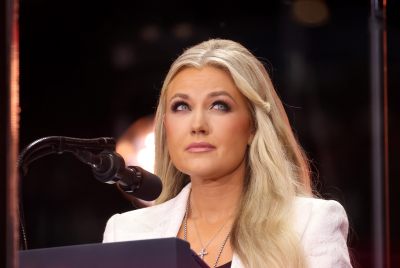Over 33k Pages of Epstein Files Have Been Released, But Dems Say There's 'Nothing New': What's Going On?
Epstein victims have received over £216 million from the estate's compensation fund

The House Oversight Committee unveiled over 33,000 pages of Jeffrey Epstein-related documents, reigniting fierce debate in Washington. While victims and lawmakers demand full disclosure on the sex trafficking scandal, Democrats insist the files reveal 'nothing new'.
Releasing 33,295 Pages: Transparency or Theatre?
The House Oversight Committee, chaired by James Comer, released 33,295 pages of Epstein documents on 2 September 2025, following a subpoena to the Department of Justice issued on 5 August.
The files span the 2005-2006 Palm Beach investigation on Epstein and subsequent federal probes. They include flight logs, court filings, surveillance footage from Epstein's jail cell, and interviews with Ghislaine Maxwell, his convicted accomplice.
Official sources confirm that victim identities were protected through redactions, in line with trends towards victim-centred disclosures in high-profile abuse cases. However, early reviews suggest much of the content merely recycles prior public disclosures, prompting criticism over the lack of meaningful progress in the 2025 Epstein files saga.
Democrats Say 'Nothing New' in Epstein Files
Democrats on the committee swiftly criticised the release. On 23 August 2025, Ranking Member Robert Garcia stated that 'only 3% of the documents given to the Oversight Committee are new', while the rest were 'already in the public domain'.
Rep. Summer Lee echoed this, calling the files 'largely thousands of pages of recycled content already made available to the public'. The only notable addition appears to be fewer than 1,000 pages of Customs and Border Protection flight logs from 2000 to 2014, detailing Epstein's travels to destinations like Paris and St. Thomas.
This pattern reflects broader 2025 frustrations with partial disclosures in sex trafficking investigations. On 7 July 2025, a DOJ memo denied the existence of a 'client list'. Garcia also accused Republicans of using the release to 'give cover' to President Trump, citing his past ties to Epstein and highlighting partisan rifts in the pursuit of justice for over 1,000 victims.
Bipartisan Push Challenges Epstein Files Stonewalling
A bipartisan effort led by Reps. Thomas Massie and Ro Khanna gained traction with a discharge petition filed on 2 September 2025. The move aims to force a House vote demanding the release of all unredacted Epstein files, potentially bypassing leadership resistance.
Massie criticised the Oversight Committee's probe for missing key elements, with heavy redactions obscuring insights, likening it to stalled grand jury transcript unsealing attempts blocked by judges in August 2025. That same day, victims met privately with lawmakers, urging full accountability, as Comer pledged to expand subpoenas to figures like the Clintons and former officials.
White House opposition labelled support for the petition a 'hostile act', reflecting 2025 trends of executive caution around Epstein-related transparency. A post from @CalltoActivism on 23 August, amplified Garcia's view: 'Most of the 33,000 pages of Epstein documents released by the DOJ already appear to be in the public domain... Another con. Another fake-out. A coverup.'
🚨MAJOR BREAKING: Most of the 33,000 pages of Epstein documents released by the DOJ already appear to be in the public domain says Ranking member of the Oversight Committee, Rep. Robert Garcia.
— CALL TO ACTIVISM (@CalltoActivism) August 23, 2025
Another con. Another fake-out. A coverup. They’ll do ANYTHING to hide Trump’s name. pic.twitter.com/ZT7oZRgy72
As debates intensify, these files underscore ongoing struggles for truth in the Epstein scandal.
Victims' £500,000 Legal Fund Spurs Fresh Claims Against Epstein Advisers
Epstein victims have received over £216 million (approximately $290 million) from the estate's compensation fund, according to court records and reports from 2021-2024 that continue to inform 2025 efforts.
In August 2025, a US judge allowed lawsuits against two of Epstein's advisers accused of aiding sex trafficking. The ruling enabled more than 100 victims to pursue additional claims targeting sealed financial documents.
These developments build on bipartisan efforts in Congress, providing avenues for further disclosures beyond the Oversight Committee's release. The push for civil litigation reflects 2025's growing emphasis on holding enablers accountable.
© Copyright IBTimes 2025. All rights reserved.




















